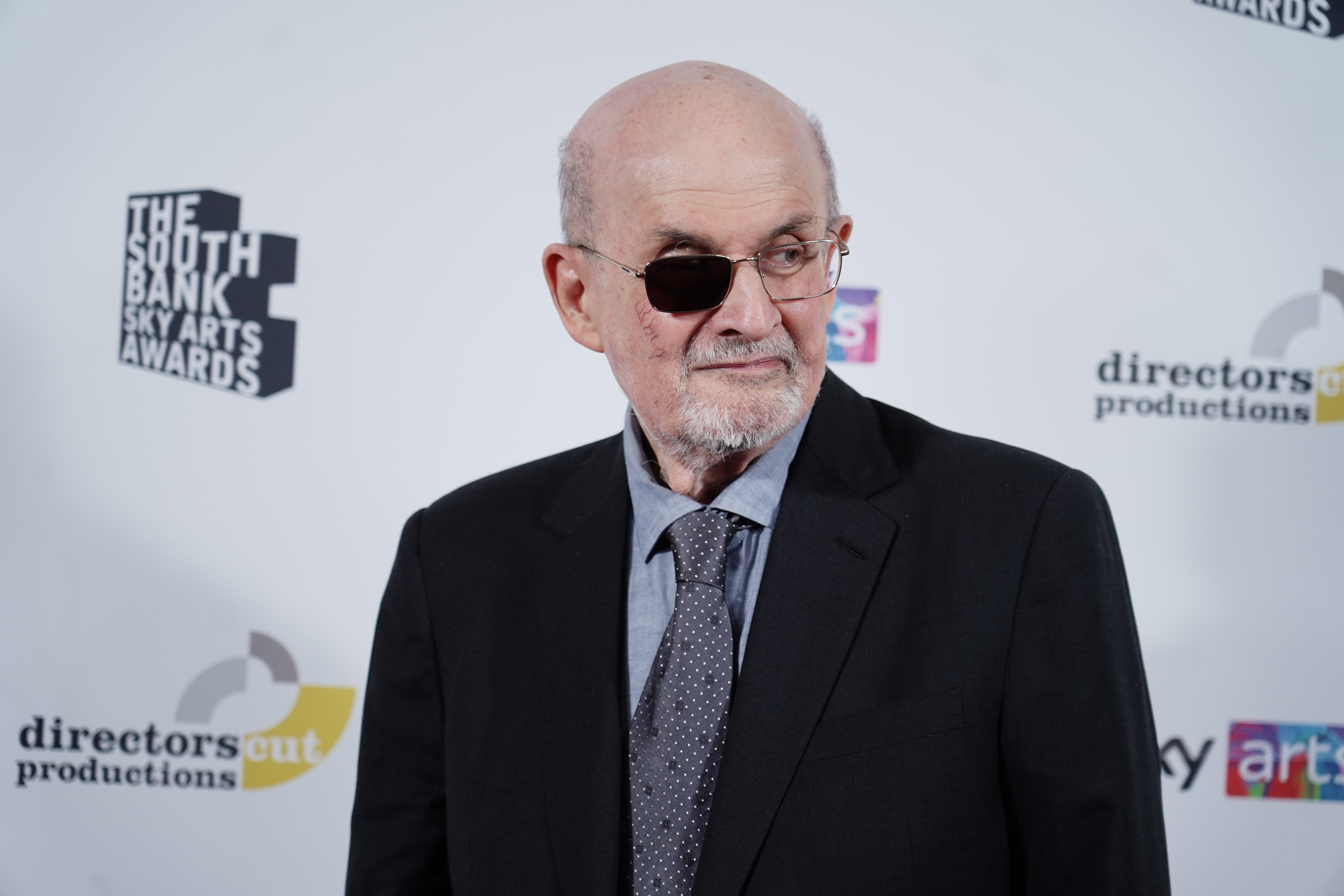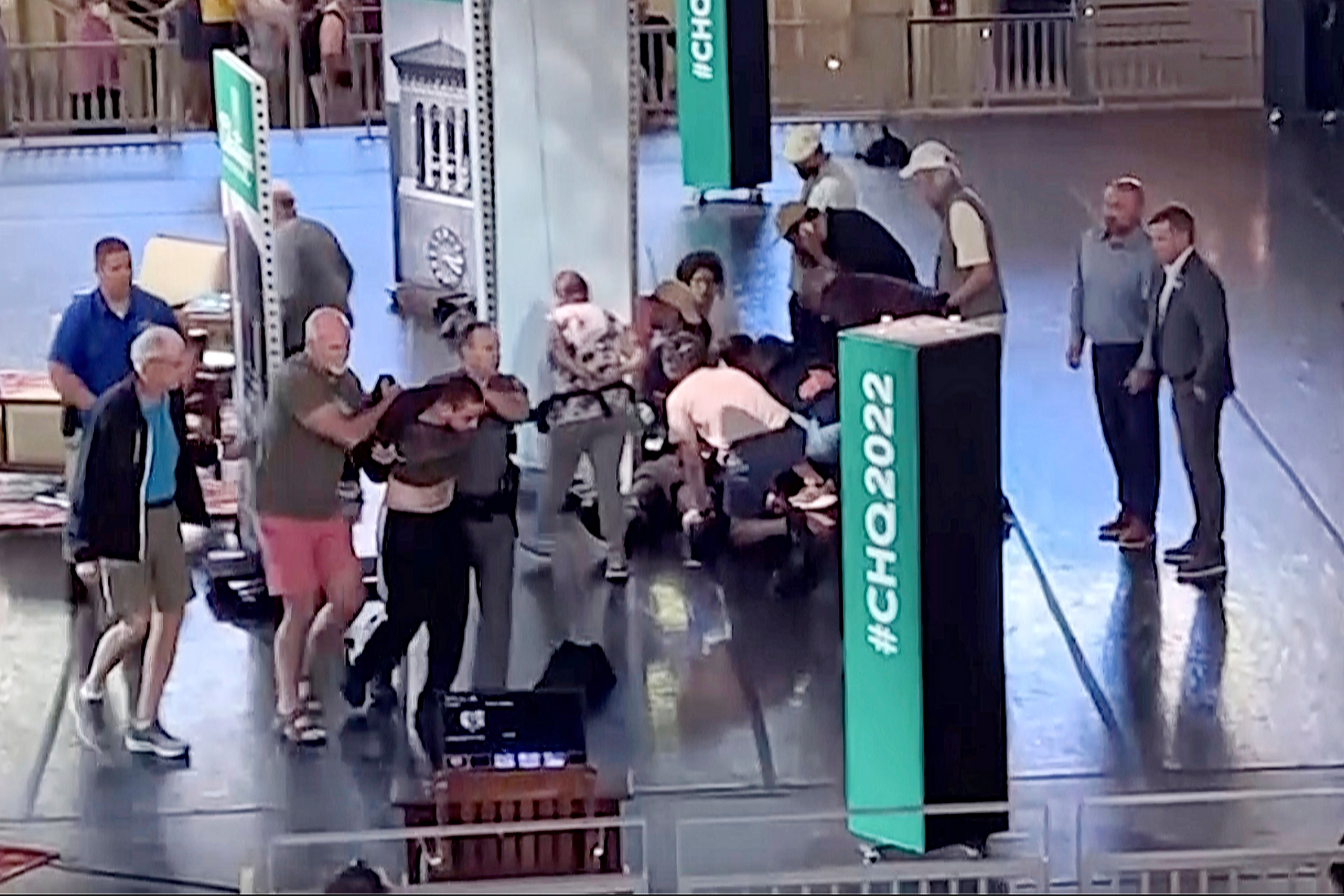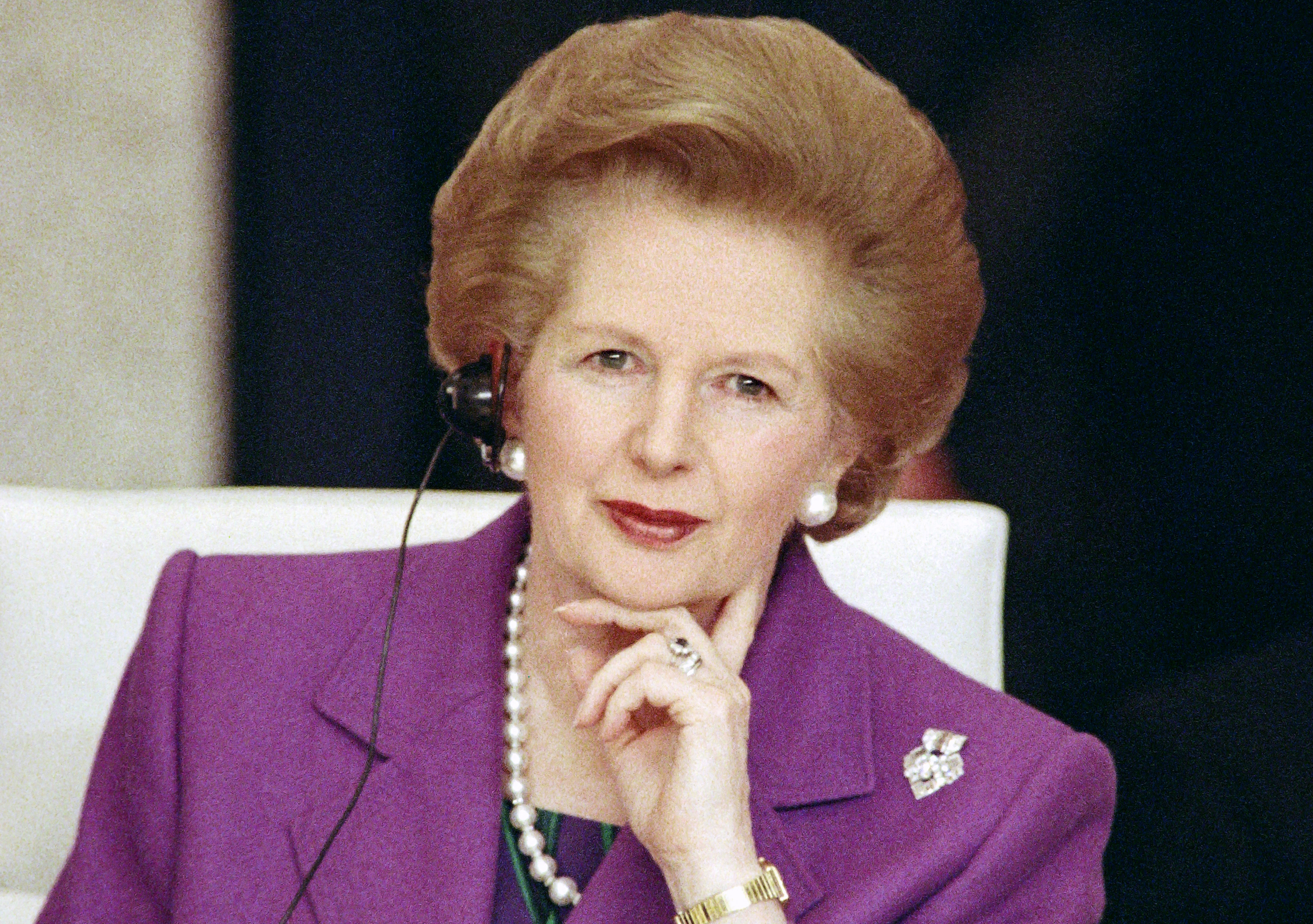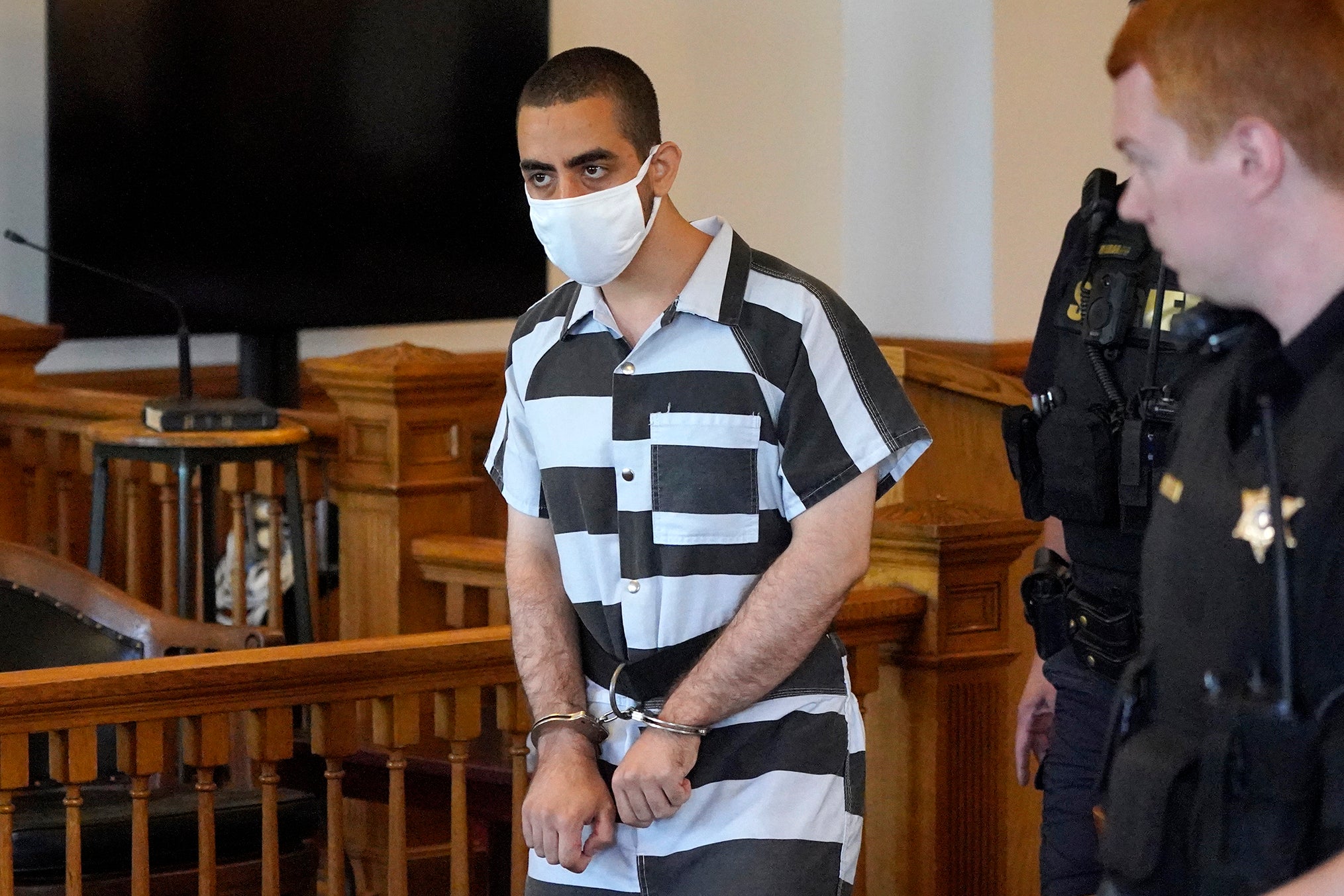Salman Rushdie reveals Margaret Thatcher inspired decision to not name knifeman in memoir
Author speaks at event for new book released after he narrowly avoided death when he was stabbed repeatedly on stage in 2022
Sir Salman Rushdie has made the surprising revelation that it was Margaret Thatcher who inspired his decision to not name the knifeman who brutally attacked him in his new memoir.
The Indian-born British-American author narrowly avoided death but lost sight in his right eye among other severe and life-changing injuries after he was stabbed repeatedly on stage at the Chautauqua Institution in New York state in August 2022.
The 76-year-old discussed surviving the attempt on his life at an event at the Southbank Centre in London on Sunday as he promoted his book Knife: Meditations After An Attempted Murder, which was released on Tuesday and explores the harrowing experience.

Journalist and author Erica Wagner asked him to talk about his reasons for only referring to his charged assailant, who is called Hadi Matar, as “The A.”, short for “The Ass” (or “Asinine man”), throughout his new memoir.
Speaking remotely from his home in the US, Sir Salman – who was educated at Rugby School in Warwickshire and King’s College, Cambridge, and lived for some of his life in the UK – revealed that former prime minister Ms Thatcher had inspired his choice.
The Booker Prize-winning writer told the audience: “I owe it to Margaret Thatcher.”
He explained that Ms Thatcher had to find a way to tackle the Irish Republican Army (IRA), which launched a number of terrorist attacks against the UK throughout her time in No 10. “She wanted to deny the terrorists the oxygen of publicity,” he said, comparing her method to his own when it came to writing about his attacker.

“That guy had his 27 seconds of fame and now he should go back to being nobody,” he said.
The 27 seconds refers to the length of the incident in Chautauqua, which Sir Salman called a “long time when someone has a knife”, but added that he never saw the weapon during the attack.
He primarily attributed his survival to the bravery of those at the event who intervened to stop the attacker.
Recalling how he felt at the time, he said: “There’s a very strange disconnect, which is that people who were there have said afterwards that I was making a lot of noise and screaming with pain, [but] inside my head I was not aware of the pain, and I think something about deep shock takes over. I had a kind of approximate awareness of what was going on but not an exact one.”

Sir Salman described the memoir as a device to give him back the power over his own life.
He said: “I have a very good therapist who actually was helpful and who [I] had discussed this book with as I was doing it. So among the many things… it’s the only book I’ve ever written with the help of a therapist.
“But what it did do, I feel, is it gave me back control of the narrative. So instead of being a man lying on stage in a pool of blood, I’m a man writing a book about a man lying on the stage of the pool and that felt like [it] gave me back the power… [because it is now] my story that I’m telling in my way and that felt good.
“The power literature has is the power to describe events in a way that the books then own those events.”

Matar, 24, from New Jersey, is awaiting trial after pleading not guilty to charges of attempted murder and assault over the attack.
Sir Salmon said he would testify in the event of a trial. “I will go in and do that,” he pledged.
Since the publication of The Satanic Verses, about the life of the prophet Muhammad, which is considered blasphemous by some Muslims, Sir Salman has faced death threats and attempts on his life.
Copies of the novel were publicly burnt on the streets of Bradford, West Yorkshire and in 1989, Iran’s former ruler Ayatollah Khomeini issued a fatwa calling for Sir Salman’s death.
Support for the death sentence was withdrawn in 1998 by the Iranian government.
Join our commenting forum
Join thought-provoking conversations, follow other Independent readers and see their replies
Comments
Bookmark popover
Removed from bookmarks